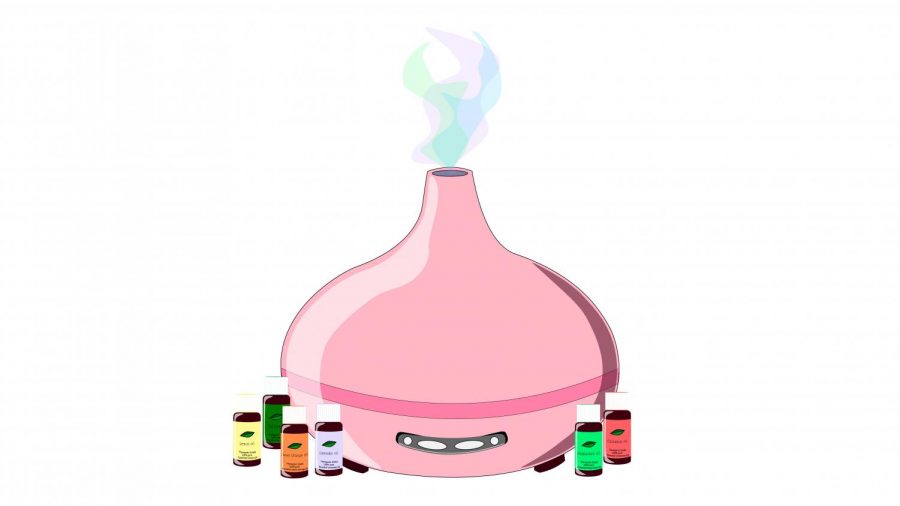Essential oils should not replace modern medicine
Essential oils should not replace modern medicine
October 8, 2018
As I’m typing this, I’m diffusing essential oils. Orange and patchouli—my favorite blend—engulf the room as my diffuser blinks in colors from blue to green to purple. It smells amazing and brings a peaceful ambiance to the room.
But I remain skeptical of essential oils, not because someone has told me these specific oils do nothing, but because essential oils are marketed as an end-all, cure-all, when that is simply not the case. Although essential oils are commonly used to treat various ailments as a natural solution, they should not be used as a replacement of modern medicine.
Essential oils have become a growing trend among Americans within the last few years, but they have been around for centuries. Essential oils are natural, typically obtained by distillation, retaining the fragrance of the plant or other source from which it is extracted.
According to Organixx—a company that sells natural supplements—oils are used for various reasons, such as lavender for stress relief; peppermint for aches; and orange for cold and flu prevention.
According to an Aug. 8, 2017, WebMD article, a recent study of 300 patients found that those who breathed in a combination of ginger, spearmint, peppermint and cardamom suffered much less nausea after surgery. Others have shown that lavender oil can lower levels of the stress hormone cortisol, and inhaling lemongrass aroma before a stressful event can prevent anxiety.
However, the same article states the trouble with essential oil companies is over-stating what oils can be used for. Even if oils can work in these specific instances, they’re much less significant in treating actual anxiety disorders or a chronic illness.
In 2014, the FDA sent warning letters to essential oil companies doTERRA and Young Living for making unsubstantiated claims that their oils could treat everything from herpes to Ebola.
“There is definitely credible science behind certain benefits for certain essential oils,” said dermatologist Cynthia Bailey, MD, in Sebastopol, CA, in the WebMD article. “But you have to choose wisely, and you cannot use them indiscriminately.”
According to a 2016 article by the LA Times, other laboratory studies have shown lavender and tea tree oil can kill common strains of fungi and bacteria.
Because of the documented small benefits, essential oils are continuously marketed as having positive effects on various health conditions, but research shows otherwise.
The same article states, “a 2012 analysis of 10 scientific reviews looking at various students on the effects of oils for some health conditions (including hypertension, depression, anxiety, chronic pain and dementia) concluded that ‘the evidence is not sufficiently convincing that aromatherapy is an effective therapy for any condition.’”
If someone diagnosed with an anxiety disorder or depression only uses oils as a form of treatment, this could lead to worsening symptoms or even suicide. If someone is using oils strictly to treat chronic pain, it is not sufficient to treat the pain.
Essential oils should not be used to replace medicine. With misinformation and marketing from these oil companies, individuals strictly using these to treat any ailments are taking a risk and could end up creating more harm than good. Don’t throw away your oils, but be mindful that these cannot fully cure your ailments.








